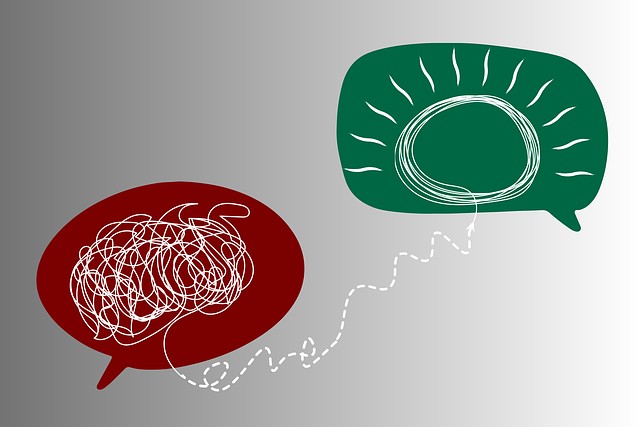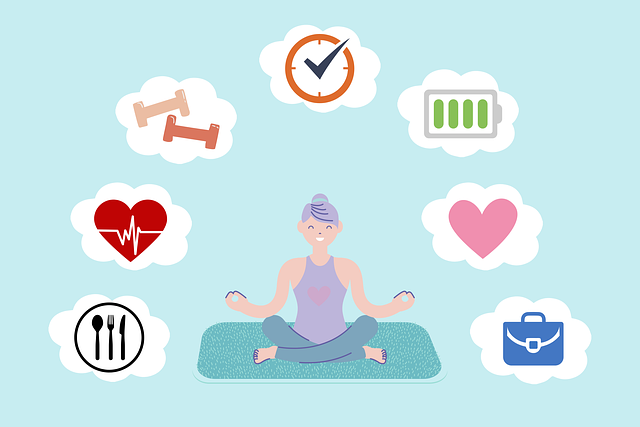Children's anxiety, indicated by irritability and sleep issues, requires early intervention through effective therapy focused on emotional resilience and coping mechanisms. Techniques like deep breathing, mindfulness practices, and art therapy help manage anxiety and improve emotional regulation. Positive thinking exercises rooted in mindfulness and compassion cultivation enhance emotional intelligence, empowering kids to challenge negative thoughts with positive perspectives. Integrating short, mindful moments into daily routines and tracking progress through journaling helps children reframe challenges as growth opportunities, fostering resilience and overall well-being. Regular progress reviews are crucial for adjusting therapy to support improved self-esteem and mental health awareness in children dealing with anxiety.
Positive thinking exercises offer a powerful tool for therapy in children struggling with anxiety, providing a proactive approach to foster resilience. This article delves into the benefits of these practices, exploring how they can be harnessed to mitigate anxiety’s impact on young minds. We’ll guide you through understanding children’s anxiety, uncovering the power of positive thinking, integrating exercises into daily life, tracking progress, and celebrating victories.
- Understanding Children's Anxiety and Its Impact
- The Power of Positive Thinking Exercises
- Implementing the Exercises in Daily Routines
- Tracking Progress and Celebrating Successes
Understanding Children's Anxiety and Its Impact

Children’s anxiety is a growing concern in today’s fast-paced world. It’s essential to understand that young minds can be highly susceptible to stress and worry, which, if left unaddressed, can significantly impact their overall well-being. Anxiety in children often manifests as irritability, difficulty concentrating, and even physical symptoms like stomach aches or sleep problems. These early signs can be red flags for more profound mental health issues down the line, making it crucial to implement therapeutic strategies early on.
Therapy for children with anxiety focuses on equipping them with coping mechanisms and fostering emotional resilience. One effective approach is integrating self-care routines into their daily lives. Encouraging a consistent Self-Care Routine Development can enhance Mental Wellness Coaching Programs, teaching children techniques like deep breathing exercises, mindfulness practices, and positive affirmations to manage their anxiety. Additionally, helping them identify and express their emotions through art, writing, or play can be transformative in developing better Emotional Regulation skills.
The Power of Positive Thinking Exercises

Positive thinking exercises have emerged as a powerful tool to combat anxiety, particularly in children. These practices, often rooted in mindfulness and compassion cultivation, offer a holistic approach to mental well-being. By training the mind to focus on positive thoughts and emotions, children can develop emotional intelligence, enabling them to better understand and manage their feelings. This, in turn, leads to enhanced resilience and improved coping mechanisms when faced with stressful situations or anxiety triggers.
Incorporating compassion cultivation practices into daily routines can foster a sense of calm and self-acceptance. These exercises encourage individuals to cultivate kindness and empathy towards themselves and others, which is essential for Anxiety Relief. As children engage in such activities, they learn to recognize and challenge negative thought patterns, replacing them with more positive and realistic perspectives. This not only helps in managing anxiety but also promotes overall mental health and a healthier outlook on life.
Implementing the Exercises in Daily Routines

Integrating positive thinking exercises into daily routines can be a game-changer for children dealing with anxiety, serving as an effective therapy for their mental wellness. Start by incorporating short, mindful moments throughout the day—for example, before meals or during bedtime—to cultivate gratitude and promote emotional regulation. These practices encourage children to focus on the present moment, fostering a sense of calm and resilience against anxious thoughts.
With consistent practice, these simple yet powerful exercises can become an integral part of their self-care rituals. Mental wellness coaching programs often emphasize the development of mind over matter principles, teaching children to reframe challenges as opportunities for growth. By making positive thinking a daily habit, kids gain tools to manage anxiety and enhance overall emotional well-being, setting them up for success in navigating life’s ups and downs.
Tracking Progress and Celebrating Successes

Tracking progress is an integral part of any positive thinking exercise, especially when aiming to enhance mental health and well-being. For children experiencing anxiety, this process can be a powerful tool to build resilience and boost self-esteem. Simple techniques like journaling can help them reflect on their thoughts and emotions, allowing parents and therapists to identify patterns and areas for improvement. By celebrating small victories and successes along the way, such as overcoming fears or completing tasks without excessive worry, children can develop a sense of accomplishment that fosters mental wellness.
Regularly reviewing progress encourages a growth mindset, where setbacks are seen as learning opportunities rather than failures. This approach aligns with therapy for children anxiety, promoting mental health awareness and helping them understand their capabilities better. It also enables adults to adjust the exercises and strategies accordingly, ensuring they remain effective and meaningful in the child’s journey towards improved self-esteem and overall mental wellness.
Positive thinking exercises offer a simple yet powerful tool for therapy for children anxiety, providing a practical way to help kids manage their fears and build resilience. By integrating these activities into daily routines, parents and caregivers can empower children to navigate their emotions effectively and cultivate a more optimistic outlook. Through consistent practice, tracking progress, and celebrating successes, even minor improvements in a child’s mental well-being can create a significant impact over time.














